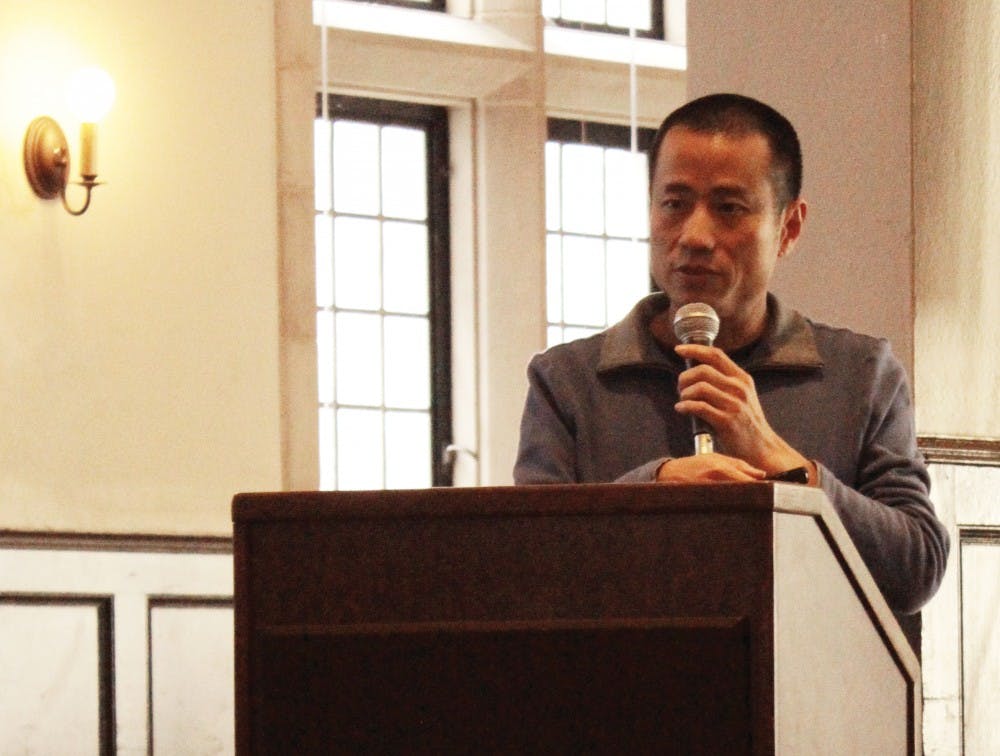When we think of countries with explosive growth, China comes to mind.
This Saturday, undergraduates and graduate students gathered in Bodek Lounge for the Penn Symposium on Contemporary China. The symposium is an annual event organized by undergraduates to provide an academic forum to discuss political, legal, economic and social factors shaping modern China. The event gathered speakers and panelists from prestigious institutions like Harvard, Yale, Johns Hopkins and NYU.
“We want to gather graduate students currently doing research on contemporary China and its involvement in the world today and bring discussion to a community greater than the academic community,” College sophomore and event organizer Christine Du said. “We want to provide a different forum for a different set of speakers.”
The symposium featured two keynotes and two panels. The panel titled “China on the World Stage” featured three speakers presenting their research and ended with a moderated discussion.
Doctoral candidate in political science Meicen Sun presented her research titled “From Institutional ‘Purchase’ to Institutional ‘Investment.’” Sun is studying International Relations and East-Asian Security at Penn.
Sun attributed China’s recent increased involvement in international peacekeeping to a shift from cost-minimization in the 1970s to benefit-maximization today. According to Sun, after the Beijing Olympics and China’s entry into the World Trade Organization-both of which required a lot of money and time to gain- China realized the value of investment into its international “reputation, image and legitimacy.”
Georgetown University senior Stephen Xenakis presented “Moving Forward While Looking Back.” Xenakis discussed why China is not advocating its growth model to other countries. His hypothesis is that China has a culture of tradition with values like Confucianism that makes it hard for the Chinese to spread their values. “The path forward will be guided by looking back,” Xenakis added.
The last speaker at the first panel was Daniel Tam-Claiborne , a Yale University graduate student in global affairs. Tam-Claiborne presented “The Brief, Wondrous Life of Wokai.” His research examines microfinance organizations and non-governmental organizations in China and focused on Wokai, a crowdsourcing micro finance organization that concluded its operations in 2012.
He discussed how regulation and the large income disparity in China create barriers for organizations that are trying to help the impoverished. In addition, he recommended various policy changes to help such organizations.
The organizers were pleased with the results of the symposium. The event will take place on campus again next year.
The Daily Pennsylvanian is an independent, student-run newspaper. Please consider making a donation to support the coverage that shapes the University. Your generosity ensures a future of strong journalism at Penn.
DonatePlease note All comments are eligible for publication in The Daily Pennsylvanian.





